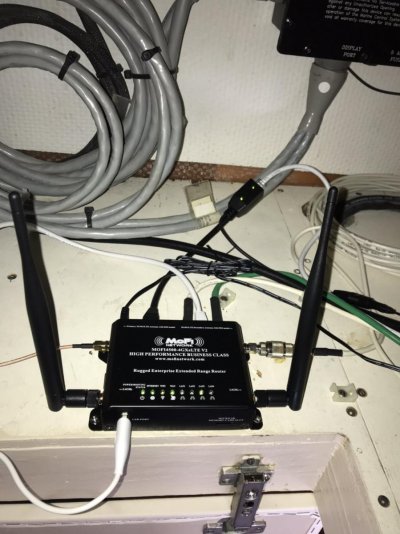Redirects can be really tricky, particularly if you're connecting a Bullet or similar device through a router. It ends up not passing the IP number through the router, so your browser doesn't see the redirect page and you just sit there.
I've found that using the ping utility on the WAN device (the Bullet or other such client that connects to an access point in a marina) is a better way to test for internet presence. Ping 8.8.8.8 and if you get a reply, you have a connection to the outside world. If you get a timeout, no internet. My experience also has been that many marinas have such poor wifi that it's just not worth connecting. OnSpot is the exception, it seems to always work, and always has great throughput. Most home-grown marina solutions are horrible.
If you can work a plan for cellular access that's not too costly, you'll have far better luck getting and staying connected via LTE vs. wifi. I recently switched to a
PepWave router, it has a USB connection for a cellular LTE modem. It will also use a Bullet or equiv. connection to a wifi AP. If cruising offshore or in areas of low signal, I set the LTE modem in a Wilson Sleek cellular amp that has an external antenna, it works great for domestic use. In the Bahamas, I use a smartphone, get a sim card for it or for an iPad and use it as a hotspot in the same cellular amp cradle, works great. The amp is a huge benefit since the towers are so far apart there. Without the amp, no service in many areas.
Pepwave also has a smaller
wifi-only solution that will connect to a marina AP or the LTE modem option. I've set one up for a boat neighbor, works great, easy config. It only uses 2.4gHz and is being phased out, but an excellent lower cost alternative.
For wifi, connecting to a 5gHz AP will give much better throughput than 2.4gHz by factors of 2 or more, and there's less interference and cross talk on 5G. You'll need a dual band antenna as well, so starting from square one it's a matter of a bit of extra cost and picking the appropriate gear. There's still a LOT of 2.4 gHz AP's where there are no 5 gHz options, so dual band is the way to go.
If you're not geek-inclined, you may find the Island PC a better option. Good support, the product works.


